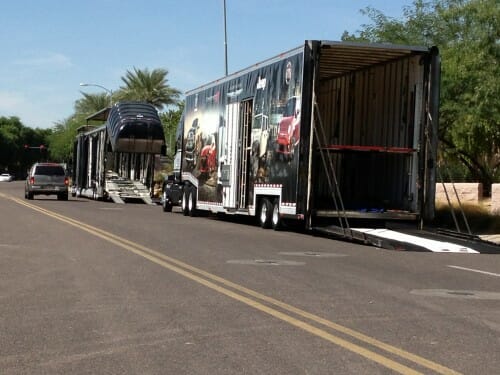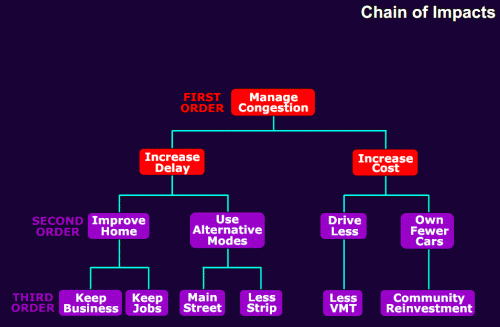A couple of weeks ago I discussed media coverage of summer temperatures in the US in the context of the crazy 2001 "summer of the shark" panic, where the media took a below-average year for shark attacks and played it up with constant coverage into the work shark attack year ever.
In 2010 we had another summer of the shark, this time with the fears over Toyota sudden accelerations. We even were treated with an OJ-White-Bronco-like real-time video of some moron in a Prius who supposedly couldn't find the brake peddle for scores of miles on an LA freeway. I expressed skepticism immediately that there was really a hardware / electronics problem behind the accelerations, and wondered whether the US government's ownership of Toyotas competitors might not have something to do with all the Senate hearings and government attention. Eventually, the NHTSA and other government agencies determined there was no flaw with the Toyotas, that the sudden acceleration was merely due to operator error (ie jamming a foot on the wrong peddle). This happens a lot, as it turns out, and I remember Walter Olson once found a stat that a huge percentage of sudden acceleration cases that make it to court seem to involved people over 70 or under 20.
ABC led the parade on this particular shark attack. They used "safety experts" who were actually in the pay of plaintiff's lawyers, without disclosing this conflict of interest. They actually tampered with their tested Toyotas and claimed they replicated the "spontaneous" acceleration:
It is hard to spot the lowest behavior in the affair so far, but that honor can arguably go to ABC and the lengths to which it went to pretend it had recreated the problem. In fact, they had to strip three wires, splice in a resistor of a very specific value and then short two other wires. They made it sound like this is something that could easily happen naturally (lol) but this is an easy thing to prove – and inspection of actual throttle assemblies from cars that have supposedly exhibited the sudden acceleration problem have shown no evidence of such shorting. So the ABC story was completely fraudulent, similar to the old Dateline NBC story that secretly used model rocket engines to ignite gas tanks. Its amazing to me that Toyota, acting in good faith will get sued for billions over a complex problem which may or may not exist in a few cars, while ABC will suffer no repercussions from outright fraud.
Basically ABC proved that if you bypass a potentiometer with a resistor, you can spoof the potentiometer setting. Duh. The same hack on a radio would cause sudden acceleration of your volume.
So, given some time and reflection, eventually the rest of the journalistic community has brought some accountability to ABC by publicly shaming them for this shoddy journalism. Ha ha, just kidding. They just gave ABC and its reporter one of their highest awards for the story
Congratulations to Brian Ross, America's Wrongest Reporter, for winning a coveted Edward R. Murrow Award honoring his coverage of the Toyota unintended acceleration story. The award, oddly, is for "Video Continuing Coverage" rather than "Fostering Global Panic Based on Bullshit Story." Still, a Murrow is a Murrow, right? Let's go to tape.
Ross, you will recall, was one of the driving forces behind the Runaway Toyota Panic of '10, which was later determined by NASA and the National Highway Traffic Safety Administration to have been largely the result of idiots stepping on the accelerator when they intended to step on the brake, and of other idiots talking about it on TV. Ross was one of those idiots. For some reason, ABC News submitted four of Ross' Toyota reports to the Radio Television Digital News Association for award consideration.
One report they didn't submit was the one where Gawker caught Ross staging footage to make it seem like a Toyota was accelerating out of control when it was in fact parked with the emergency brake on, doors open, and someone stepping on the gas. We're told by an ABC News insider that, even though it didn't nominate that segment, the network "acknowledged and owned that mistake" in its awards submission. Good for them! Now let's see them acknowledge and own these mistakes from the segments it did submit. For instance:
In two of the winning reports, Ross quoted safety expert Sean Kane criticizing Toyota and insisting that there were cases of unintended acceleration that "couldn't be explained by floormats," which Toyota had recalled in 2009 after some mats became stuck under gas pedals. What he didn't report was that Kane was being paid by plaintiff's attorneys who were suing Toyota over unintended acceleration cases, and so had a financial incentive to argue that there was more to the Runaway Toyota scare than just floormats. Indeed, in other ABC News segments that the network didn't nominate, Ross showed Kane saying—again without disclosing his relationship to plaintiff's attorneys—"We clearly think that Toyota has a larger problem on their hands that involves the electronics with these vehicles." That position—that electronics were involved—was later eviscerated by the NASA/NHTSA report, which found "no electronic flaws in Toyota vehicles capable of producing the large throttle openings required to create dangerous high-speed unintended acceleration incidents."




